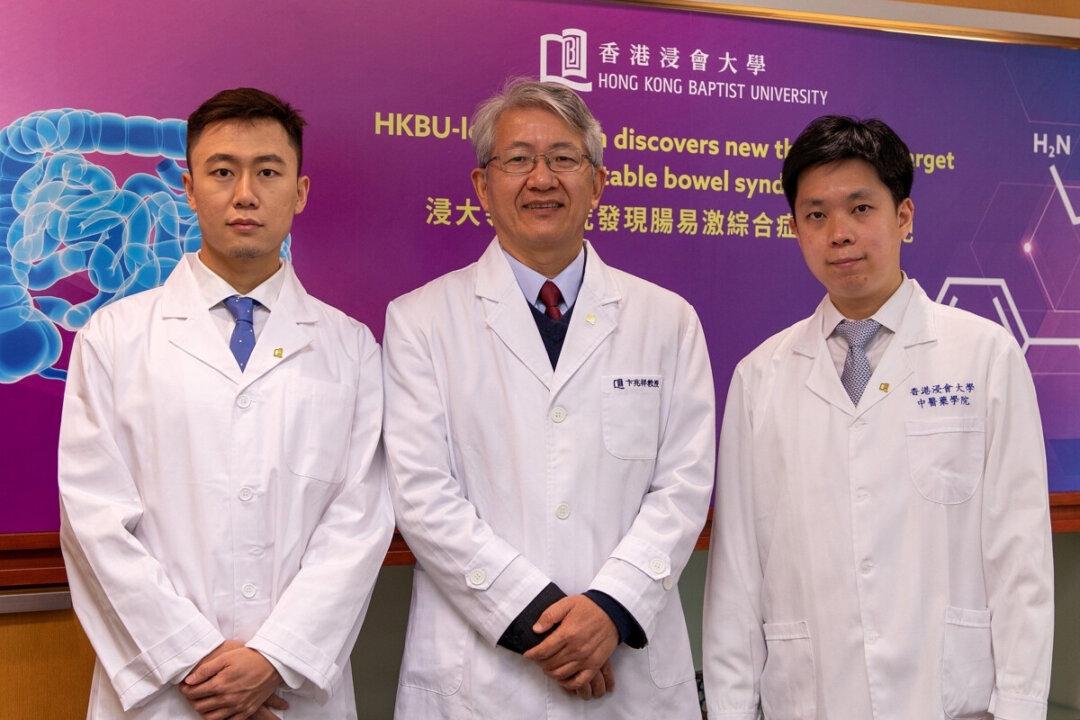Researchers at the School of Traditional Chinese Medicine of Hong Kong Baptist University discovered that an intestinal bacteria called ruminococcus gnavus is the primary culprit that triggers diarrhea-predominant irritable bowel syndrome, and they have found a new remedial target for the disease.
Bian Zhaoxiang, Director of the Clinical Division and Tsang Shiu Tim, Endowed Professor in Chinese Medicine Clinical Studies; Dr. Xavier Wong Hoi-leong, Assistant Professor of the Teaching and Research Division; and Dr. Zhai Lixiang, Post-Doctoral Research Fellow of SCM at HKBU, joined hand in the groundbreaking study.




